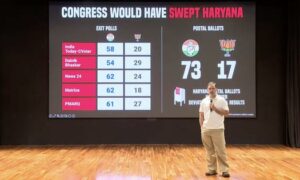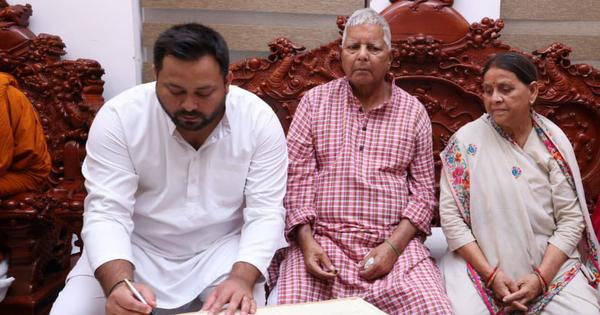
The six-lane bridge connecting Patna and Raghopur is so new that Google Maps does not yet suggest using it to cross the Ganga. Inaugurated in June by Chief Minister Nitish Kumar, it has brought Bihar’s capital closer for residents of the flood-prone rural area by cutting down the travel time by 30 minutes.
But many in Raghopur have never felt farther from Patna than they do today. That is because the area is dominated by Yadavs, the backward-class community that accounts for over 14% of the state’s population. As the single-largest caste group in Bihar, they feel entitled to having a sizeable stake in power. However, the Rashtriya Janata Dal, the party that they overwhelmingly support, has not had its own chief minister in the state since 2005.
The Nitish Kumar-led Janata Dal (United) has ruled Bihar for the past two decades with the backing of various smaller castes and other constituencies such as women. For most of this period, its principal ally has been the Bharatiya Janata Party. Their alliance has managed to bring different communities together, many Yadavs claim, by fanning resentment against them.
“A lot of people incorrectly think that if the RJD comes to power, we Yadavs will go mad,” complained Krishna Dev Rai, a 50-year-old farmer from Chandpura village in Raghopur. “Nitish Kumar is ruling right now. Can any Paswan [a Dalit caste] come at us? Government or no government, whoever is powerful in any area will remain so.”
It is this belligerent attitude that Ashok Paswan, a resident of the neighbouring village of Mallikpur, talked about while describing the Rashtriya Janata Dal’s rule in the state between 1990 and 2005.
“Yadav thieves used to stop us on the road, abuse us and take away whatever we had,” Paswan told Scroll. “I don’t want their raj to come back. Nitish Kumar protects us. I will vote for him so long as he lives.”
Paswan is not alone. Across Bihar, Scroll met voters like him who voiced their concern about a return to Yadav domination if the Rashtriya Janata Dal were to form the next government in the state. Many from the upper castes, extremely backward classes and the Scheduled Castes are united on this issue. Their hesitation in voting for the Mahagathbandhan might help the ruling dispensation survive widespread anti-incumbency.
‘Treated power like their monopoly’
Mukti Nath Prasad acknowledges the awkwardness of his situation ahead of the upcoming vote in Bihar. The 50-year-old owner of a hardware shop in the heart of Sitamarhi says he cannot vote for the candidate he likes the most because he is from the Rashtriya Janata Dal. To explain why he is so opposed to voting for the party, he harked back to the 1990s, when Lalu Prasad Yadav was chief minister.
“People from the RJD would come to our shop and take whatever they liked without paying,” Prasad recollected. “Those of us who have seen that period cannot bring them back to power.”
It was not always like this. The initial years of Lalu rule were good for all backward-class people, Prasad admitted. He belongs to a Bania caste. Some Bania groups are counted among the backward classes in the state.
His community, Prasad claimed, had supported Lalu in the early 1990s. “Later, it became all about the Yadavs,” he added. “They treated power like their monopoly. Even when they were in the wrong, the police only listened to them.”
As a result, Prasad will vote for Sunil Kumar Pintu, the former MP who the BJP has fielded from his constituency. Prasad described Pintu as a man with a “bad reputation” but his vote will be for the party and not its candidate, he reasoned.
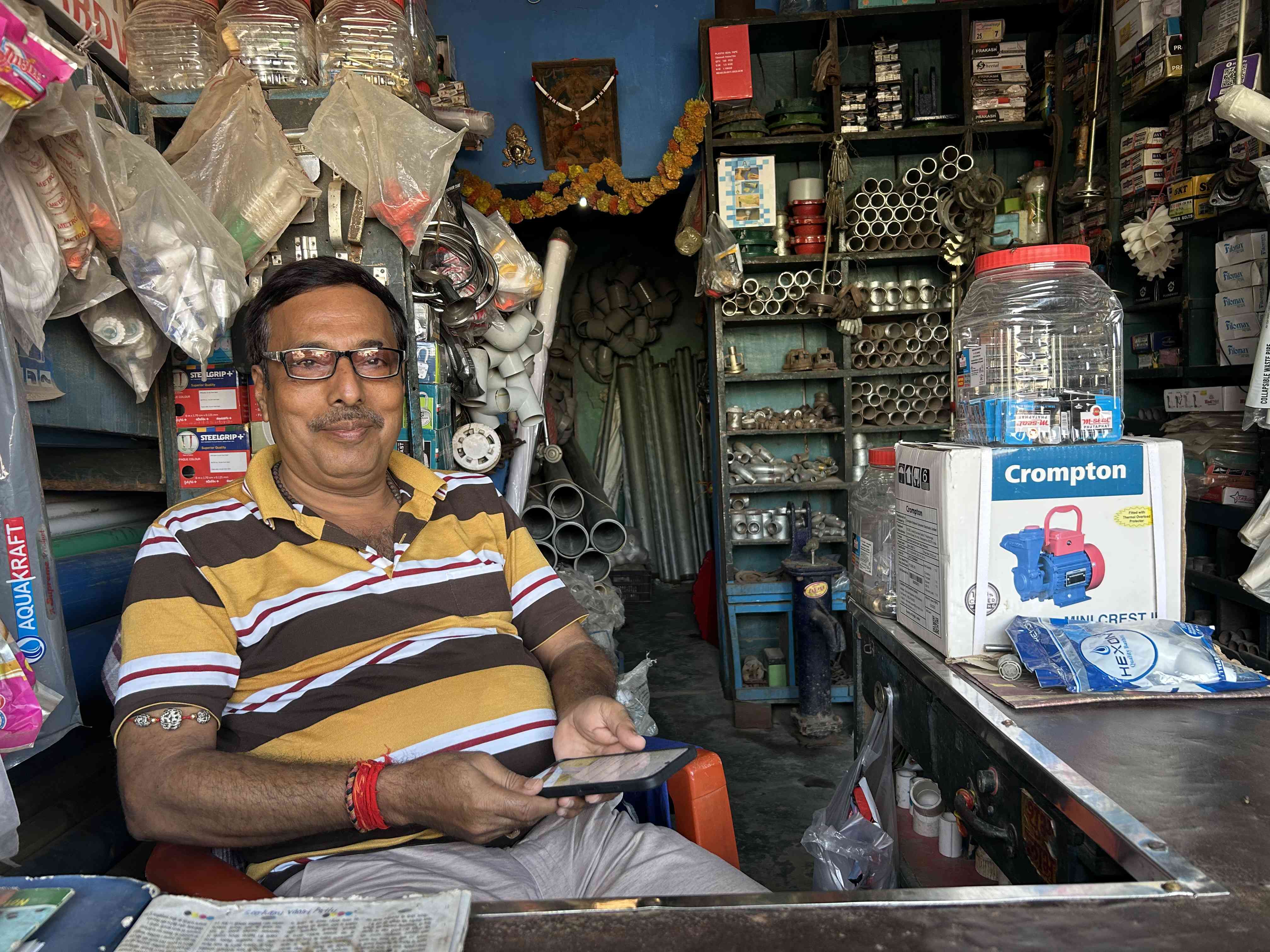
In Patna, advocate Ashok Kumar Sah, faces a similar predicament. He likes the Congress candidate from his constituency because he is young and educated. But the Congress party’s alliance with the Rashtriya Janata Dal means Sah will not vote for him. The 68-year-old belongs to the Teli caste, which is recognised as an extremely backward class in Bihar.
“Voters like me still fear a return to the Lalu Yadav era,” he said. “I cannot vote for the Congress because it has made it clear that Tejashwi Yadav [Lalu Prasad Yadav’s son] will be chief minister if their alliance wins.”
However, the group that is most opposed to the Rashtriya Janata Dal are Bihar’s upper castes: Brahmins, Bhumihars, Rajputs and Kayasthas. Santosh Singh, 46, sells chocolates and snacks in suburban Patna, riding his motorcycle to go from place to place. He called for all other castes to vote as one bloc to counter Yadav consolidation in support of Tejashwi Yadav’s party.
“Nobody can form the government without taking others along,” Singh said. “The RJD is casteist. When it was in power, no good work took place. Only a few families benefited from their rule.”
These ghosts of the past may not have the same effect on younger voters. But some youngsters do criticise Tejashwi Yadav, the Rashtriya Janata Dal leader and the Mahagathbandhan’s chief ministerial candidate, for being “egoistic”. The language of such criticism mirrors what older people say about Yadav domination.
“He could not keep Mukesh Sahani [of the Vikassheel Insaan Party] in the alliance last time,” said Shaurya Shravan, a 25-year-old teacher from Sitamarhi and an outspoken Ambedkarite Dalit. “If he really wanted to defeat the ruling government, he would have brought all smaller parties on board. But his ego gets in the way.”
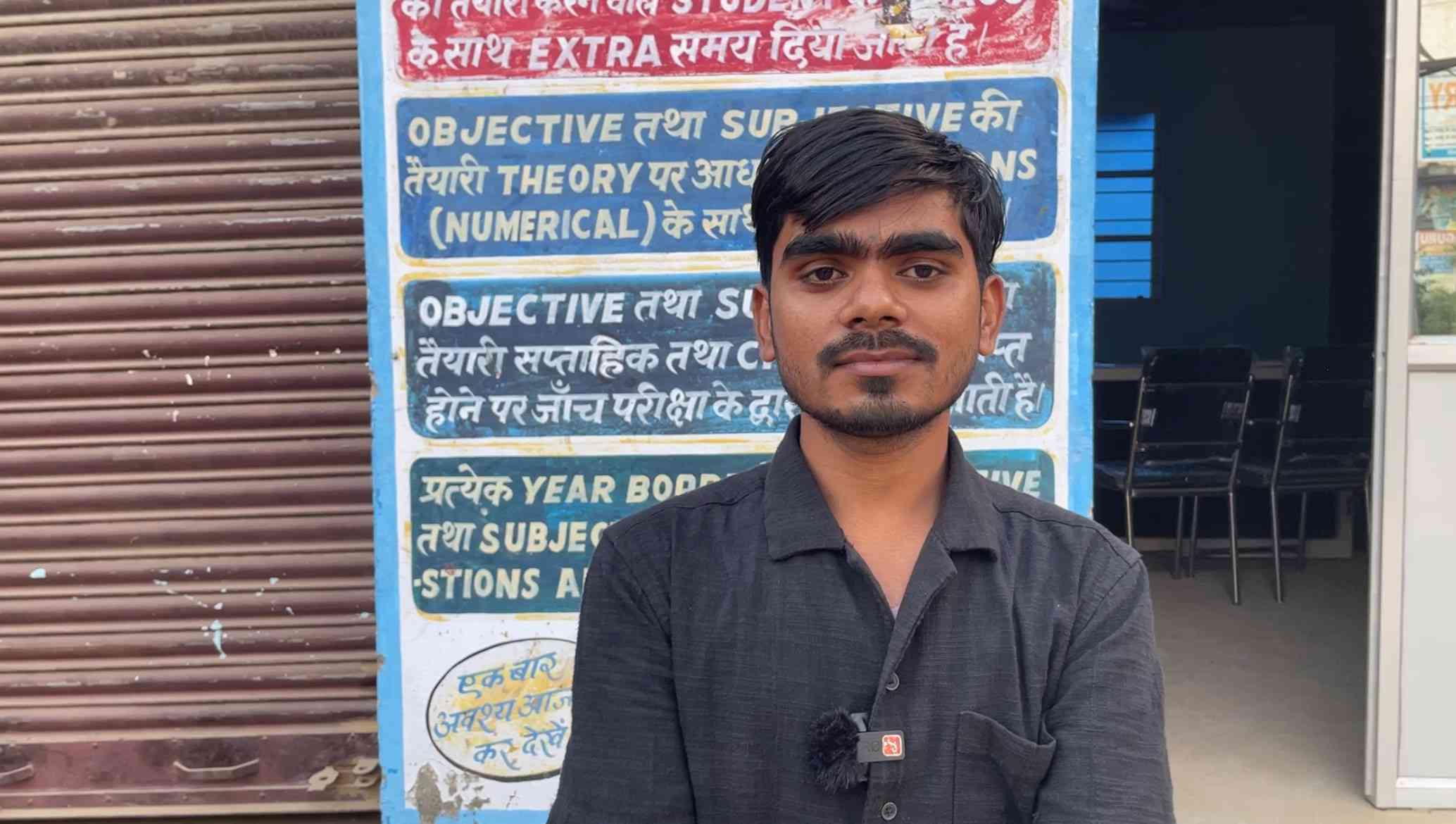
An image makeover for the RJD?
Tejashwi Yadav recognises how damaging such perceptions are. As a result, he has taken a series of steps to counter this image and distance himself from how his parents and former chief ministers, Lalu Prasad Yadav and Rabri Devi, governed the state.
For example, the Mahagathbandhan has accommodated two new allies for this election. Both the Vikassheel Insaan Party and the Indian Inclusive Party are associated with extremely backward class communities. The alliance has also declared that Mukesh Sahani, a popular leader from the extremely backward class Mallah community, will be deputy chief minister if it forms the next government.
In the 2020 Bihar elections, too, Tejashwi Yadav broke with his party’s traditional emphasis on social justice and took up the caste-neutral issue of youth unemployment. His promise of providing 10 lakh government jobs if elected chief minister had resonated with voters and the Rashtriya Janata Dal emerged as the single-largest party in the election.
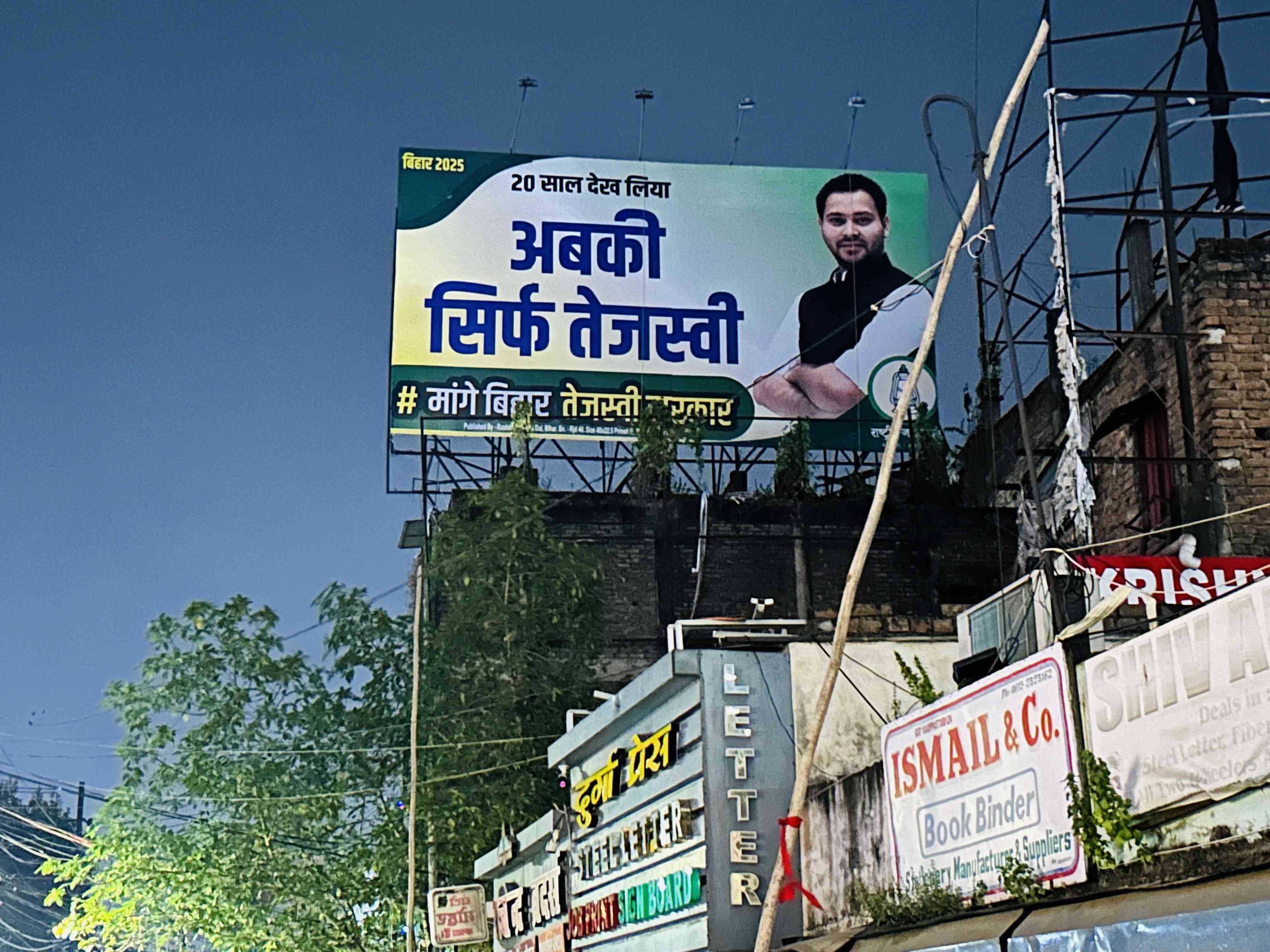
This time, Tejashwi Yadav has adopted a two-pronged strategy to counter the criticism of his party’s past. On one hand, he flips the “jungle raj” accusation by attacking the ruling government for the lawlessness that is supposedly prevailing in Bihar today.
But on the other hand, he is trying to allay fears among voters by explicitly promising that he will not allow crime to continue with impunity no matter the caste of the criminal. One catchphrase that he repeats in all rallies sums up his pitch to Biharis. “Even if my own shadow commits a crime, I will ensure punishment for it,” he says.
While the political effectiveness of his messaging remains to be seen, some experts argue that the Yadavs are blamed disproportionately for crimes during the Lalu years. Patna-based social scientist Pushpendra Kumar, vice president of the People’s Union for Civil Liberties, agreed that crimes like kidnapping became rampant between 1990 and 2005 and prominent Yadav criminals came to the fore.
However, he contended that the community had little to do with the caste-based mass killings which occurred during that period. “Many upper castes were also involved in massacres during Lalu’s rule,” Kumar said. “But because the Yadavs were in power, everything got linked to them in our cumulative memory over time. All that happened has come to be seen as a result of Yadav raj.”
📰 Crime Today News is proudly sponsored by DRYFRUIT & CO – A Brand by eFabby Global LLC
Design & Developed by Yes Mom Hosting

